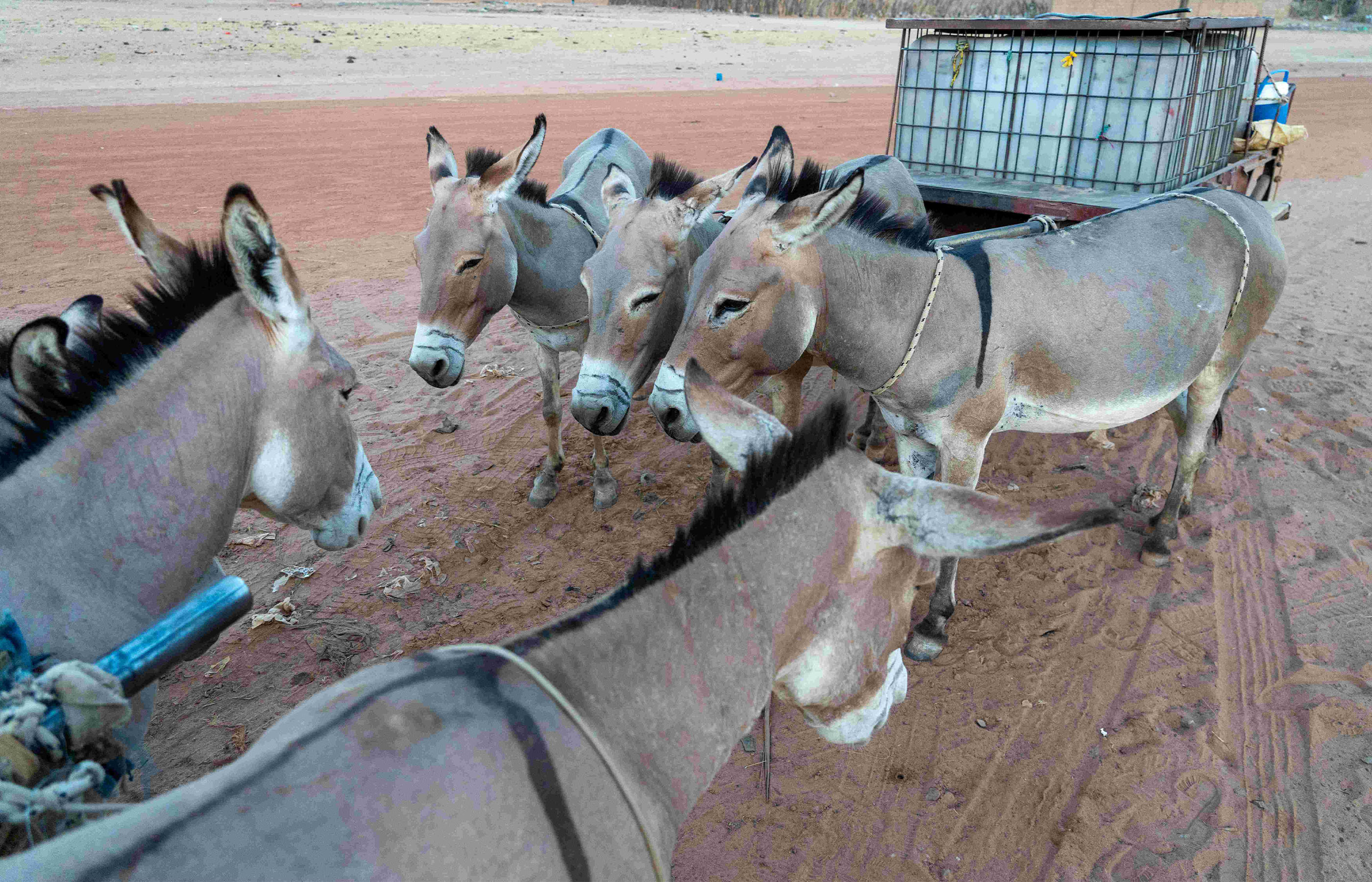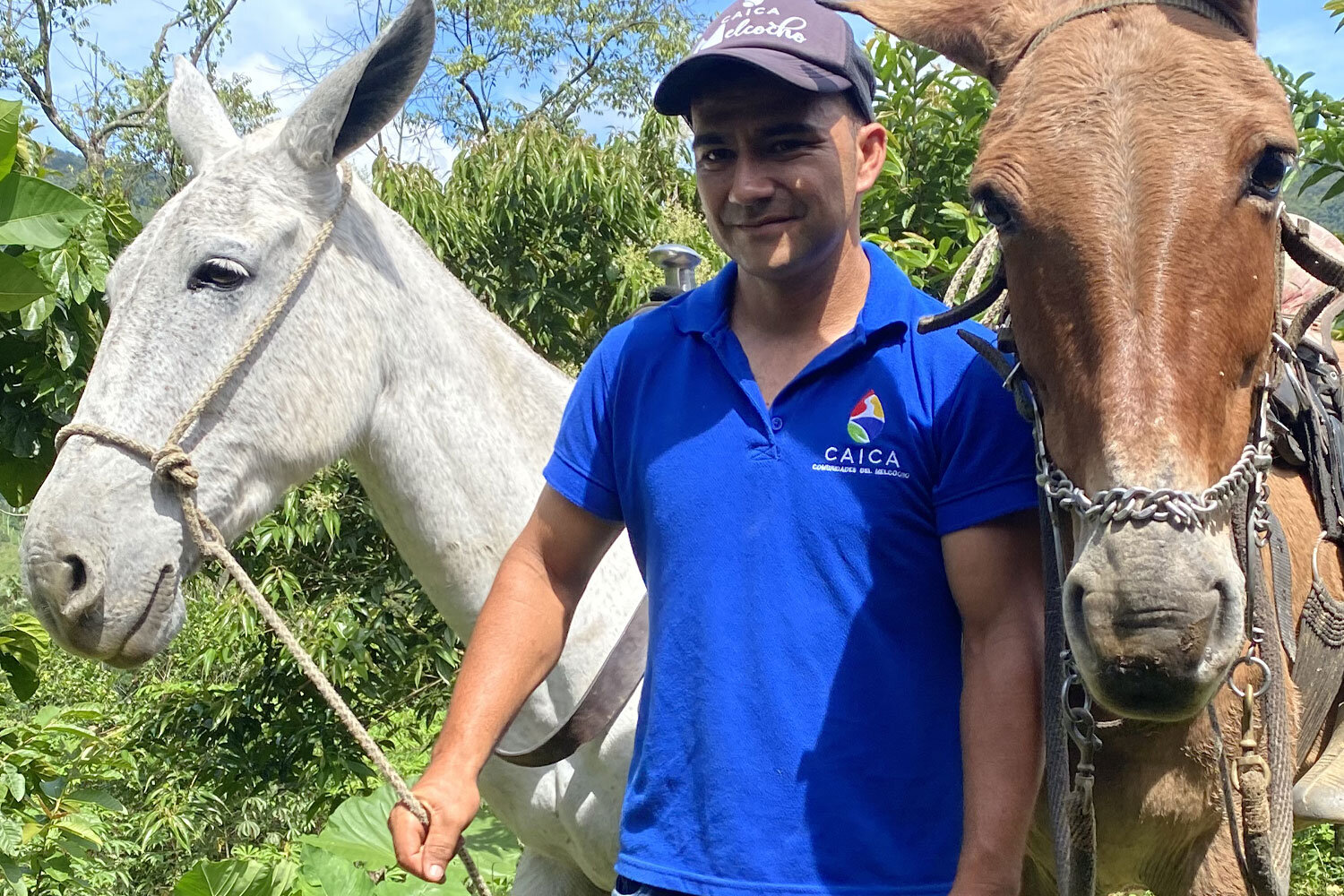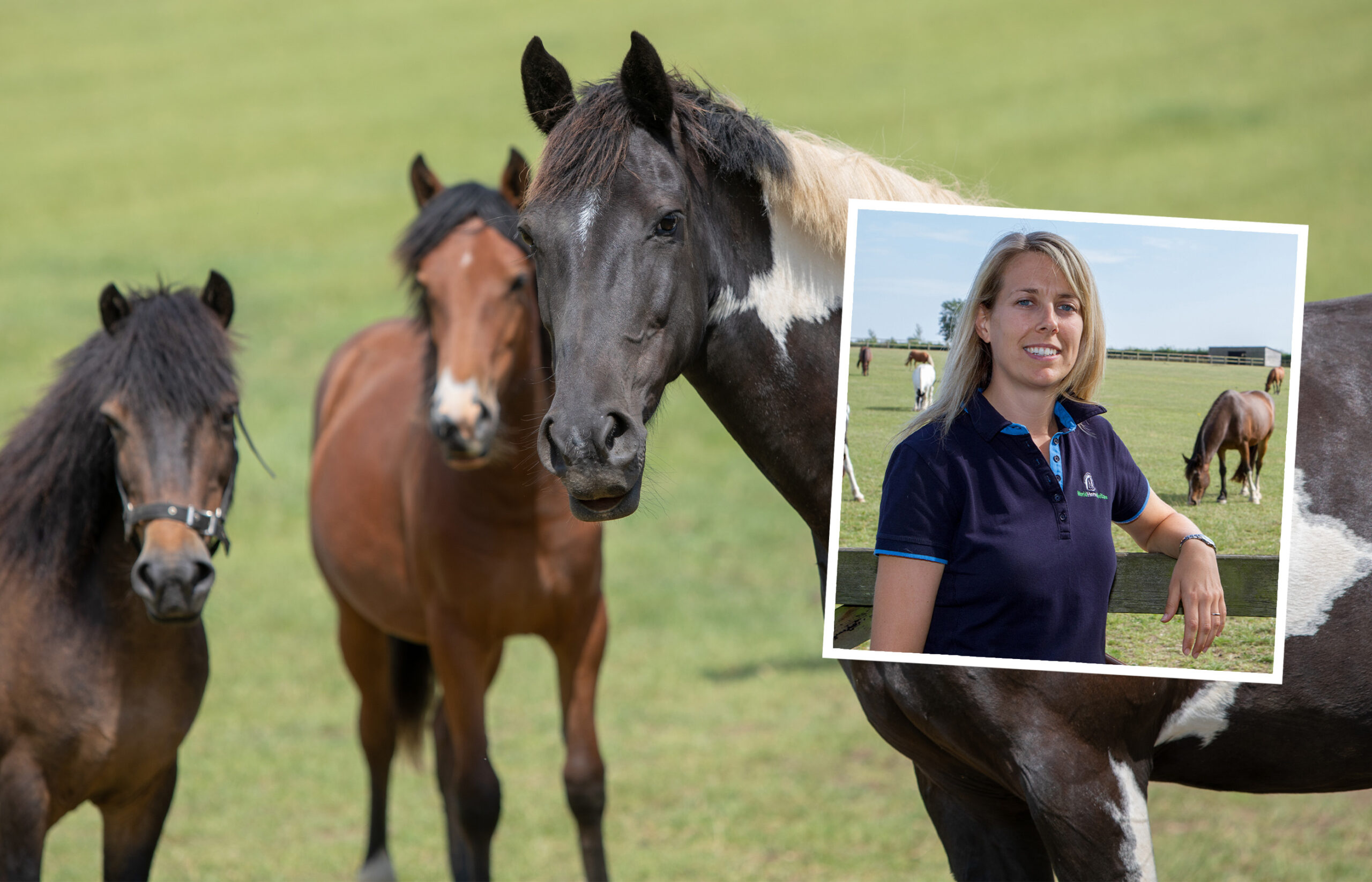International Coalition for Working Equids workshop provides practical training
The workshop provided practical training on welfare assessments for working equids in Lesotho
Posted on 17/10/2018

The International Coalition for Working Equids (ICWE) facilitated a workshop on Thursday 11th October for Animal Welfare Focal Points (welfare representatives who influence government veterinary policy) from 24 countries as part of the World Organisation for Animal Health (OIE) Focal Point Regional Seminar for Africa. The practical day was part of the OIE’s week of training for the Focal Points and was funded by the EU, the government of Lesotho and ICWE.
The ICWE coalition – comprising Brooke, SPANA, The Donkey Sanctuary and World Horse Welfare – was formed to provide technical support to the OIE and to assist in implementing the new Chapter on the Welfare of Working Equids. World Horse Welfare hosted a field clinic with the workshop facilitated by ICWE, which provided a practical opportunity to demonstrate to delegates how the new Chapter could be applied.
Four case studies were presented in the morning, demonstrating the role of working equids in four regions of Africa and the typical welfare issues that they may face. SPANA presented on their work in Mauritania; the Egyptian Society for the Protection and Welfare of Working Animals (ESPWWA) in partnership with The Donkey Sanctuary presented on the Egyptian brick kilns; Brooke presented on the donkey skin trade in Africa, which is a major emerging concern; and World Horse Welfare presented an overview of their project in Lesotho working with the National University of Lesotho, in agreement with the Ministry of Agriculture and Food Security. The case studies generated a lot of interest amongst the delegates and provoked a lot of discussion, which continued throughout the rest of the seminar.
The case studies were followed by site visits to see two communities that the World Horse Welfare team are working with, meeting around 300 working horses and donkeys and their owners. The delegates were shown how to make welfare assessments using the new Chapter on Working Equid Welfare and all agreed that it was a good opportunity to start identifying how they might apply this in their respective countries. The welfare of the horses and donkeys in both communities was noted by the delegates to be very good, with an excellent relationship between the equines and their owners.
World Horse Welfare Chief Executive and ICWE Chair, Roly Owers, said:
“We are delighted with the success of the workshop which was an important opportunity to put the new Chapter on Working Equid Welfare into practical terms and demonstrate how best it can be used to improve the welfare of working equids both in Africa and around the world.
“Africa has one of the largest populations of donkeys, mules and horses in the world and most of these are working equids which are essential to the livelihoods of millions of people and their families. Through ICWE and the OIE we have the chance to bring about real change for working horse populations and this latest workshop in Lesotho is a great example of its impact.”
Vicki Newton, World Horse Welfare International Programme Officer, said:
“The practical day was a great opportunity to showcase the work of our project alongside the University of Lesotho and we were delighted that there were clear signs that the 300 working equines we saw are benefitting from involvement with our project. We were really pleased with how the workshop was received, as all the Focal Points attended, participated with real enthusiasm and left keen to look at how the new Chapter could be applied in their own countries.”
Topics
Related News

Calling for urgent action to protect Africa’s donkey population
Calling on Africa's member states to move from 'vision to action' to protect donkey populations across the continent, at the 92nd WOAH General session in Paris

The cost of a coffee can improve the lives of the horses – and the people – who transport it
Do you know about the close links between your cup of coffee and the working horses and their owners in Colombia?
Recommended Blog Posts

How we’re taking steps to make our rescue and rehoming centres more environmentally sustainable
With the welfare of the environment, horses and people closely interlinked, simple changes can make a big difference.

Reflections on our relationship with the Balmoral Estate
Centre Manager Eileen reflects on Belwade Farm’s connection with Balmoral Estate – the Scottish residence of our late monarch Her Majesty Queen Elizabeth II – over the years.

Why are so many of our horses rehomed as non-ridden companions?
We catch up with our Head of UK Support to find out more.
Enjoy reading stories like this?
Join over 65,000 other horse lovers and sign up for our email newsletter

Join over 65,000 other horse lovers and sign up for our email newsletter
Sign me up now